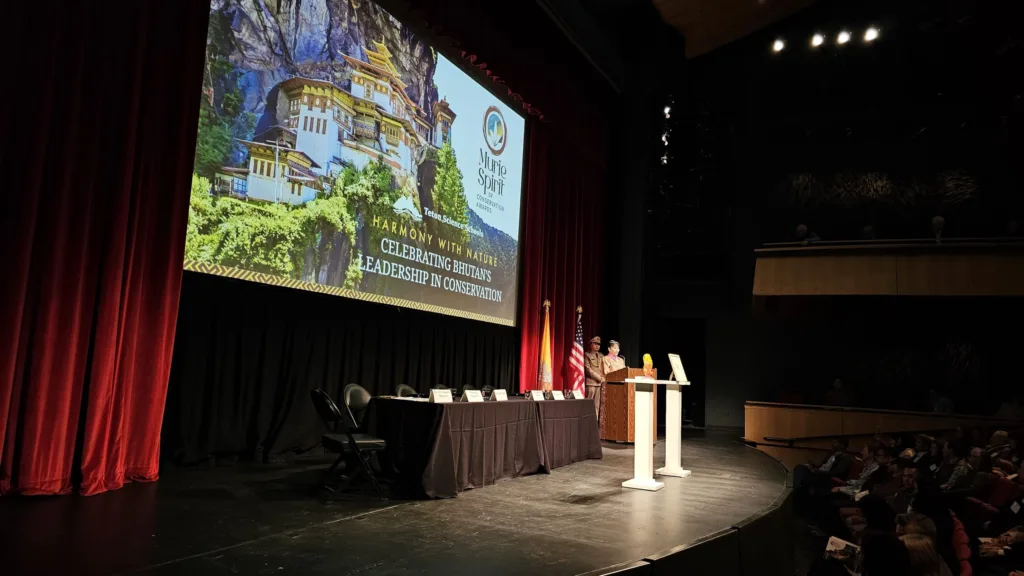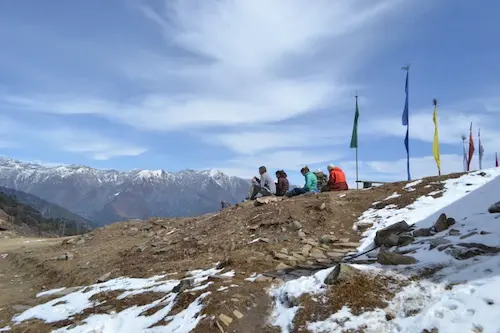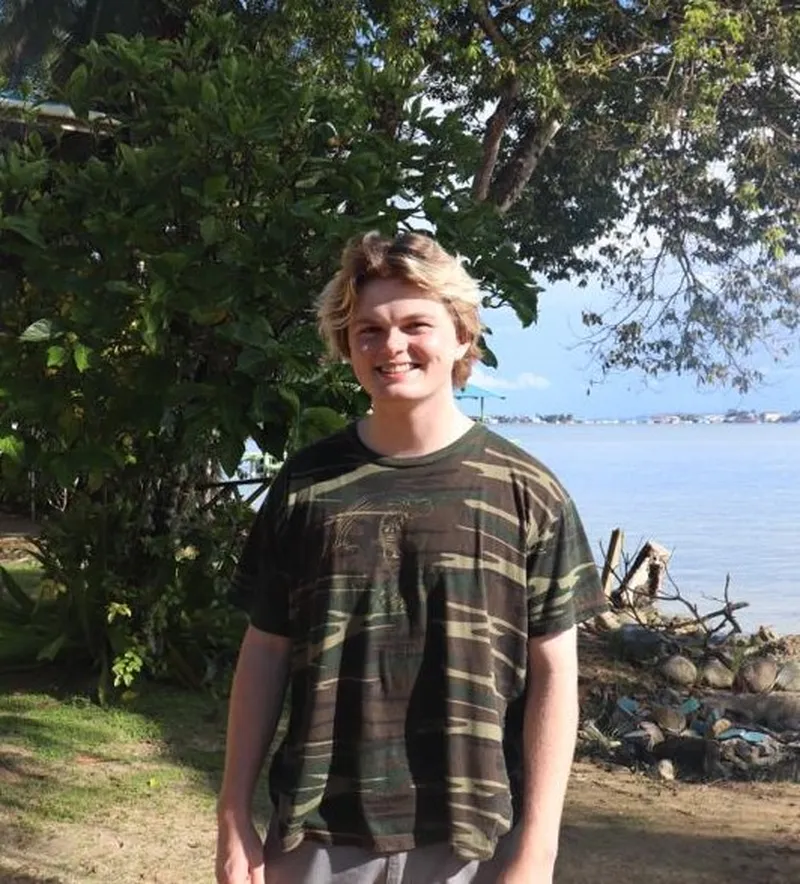
By: Finlay Adamson
In Conversation with Bocatoreños
It’s easy to sit in an American classroom and consider these issues from a detached perspective, but much more difficult when you sit face-to-face with fishermen, farmers, and community members and hear their perspective.
One of the most impactful lectures I’ve been part of in the TIBS classroom was my first. Sitting on the dock/classroom, our group discussed attitudes of environmental sustainability in the U.S. and abroad. A recurring theme brought up by students and professors was the American tendency to center conservation away from people, imagining nature as a pristine and ‘untouched’ environment. While it might be tempting to think of the natural environment as separate from human society, this is a fundamentally flawed way of thinking. You can’t have a conversation about sustainability without talking about people. After half a semester in Panama, nothing stands out more to me than this lesson.
In and outside of the classroom, the people of TIBS and Bocas del Toro make this program worth taking part in. The nature of the campus allows students to interact with local Bocatoreños and SFS staff in ways that wouldn’t be possible at a traditional university. After small group lectures in the classroom, we eat lunch with our professors and administrators and chat about our personal lives. Whether playing spikeball with my professor or running 10K’s with the Health and Wellness Manager, Andy, and his golden retriever, I’ve quickly started to feel like part of the campus community. This sense of openness and welcoming is also demonstrated in the words and actions of local Panamanians. Panamanian society is highly social and communal compared to the United States; while I knew this before I arrived on Isla Colon, I wasn’t fully prepared for how different this would feel compared to my regular life.
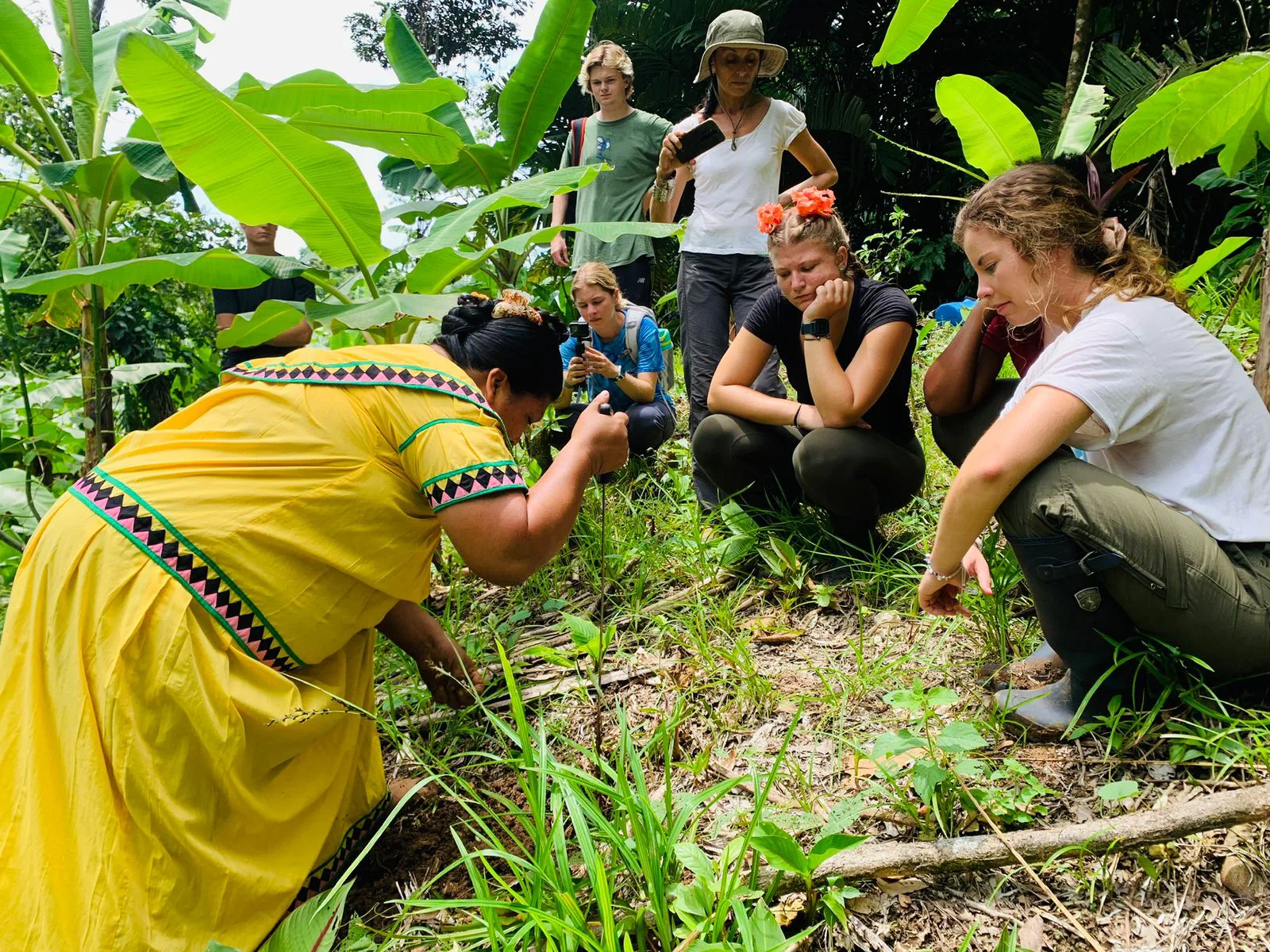
A Ngabe woman plants a tree with SFS TIBS students. (Photo: Andres Palacio).
It’s impossible to separate our classroom curriculum from the personal experiences I’ve had while in Bocas. Every topic we’ve discussed with professors–environmental conservation, land rights issues, marine biology–is reflected in the ecological and social realities of Panamanian life. My favorite trip so far was our visit to San Cristóbal, a small indigenous Ngäbe community located about 25 minutes away from campus. We took part in an hours-long hike where Ngabe women with a vast knowledge in botanical medicine taught us about the many uses of rainforest plants for physical and mental ailments. More than the walk itself, however, I learned a huge amount from quick conversations with community members. In stilted Spanish, I talked to local women about San Cristóbal’s relationship to the local government. Located outside of the Ngäbe-Buglé Comarca, a region with many state powers delegated to the indigenous community, San Cristóbal maintains a complex relationship with the Bocas del Toro province and struggles to receive adequate support for public infrastructure. No amount of academic research would have allowed me to learn so much about Ngäbe society and culture, and I am deeply grateful for the opportunity to go on this trip.
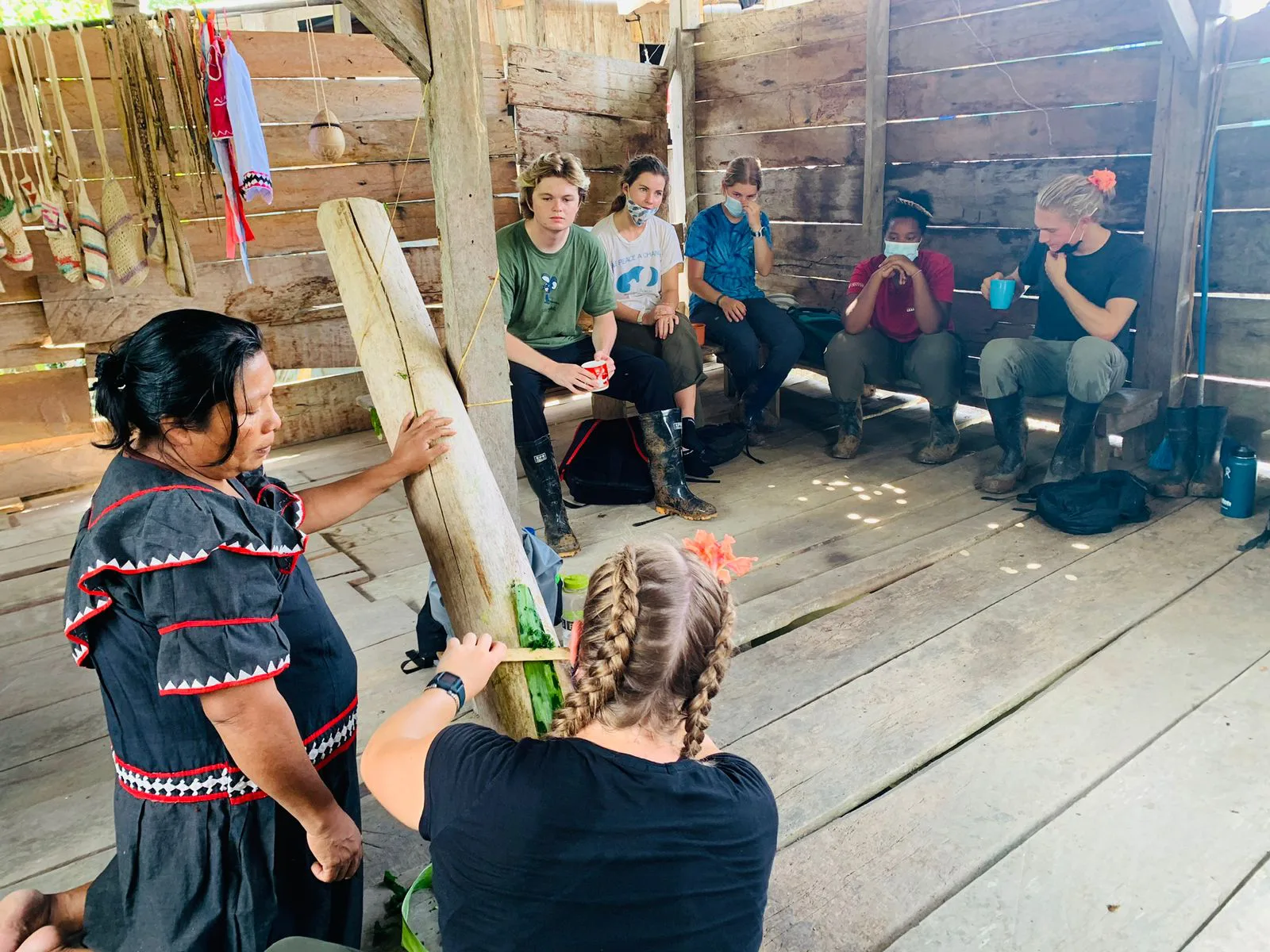
SFS TIBS students learn from Ngabe woman how to take out the fibers of a plant. (Photo: Andres Palacio).
My experiences in Panama have complicated my understanding of sustainability, conservation, and politics. It’s easy to sit in an American classroom and consider these issues from a detached perspective, but much more difficult when you sit face-to-face with fishermen, farmers, and community members and hear their perspective. Knowing that I learn the most from these discussions, I hope to spend the month and a half I have left in Bocas in conversation with Panamanians.
_______
Curious to learn a bit more about the SFS Panama Center? Click here to read about why we’re based there, our environmental research focus, how we connect and support the local community, and even take a tour of the Center.
Related Posts
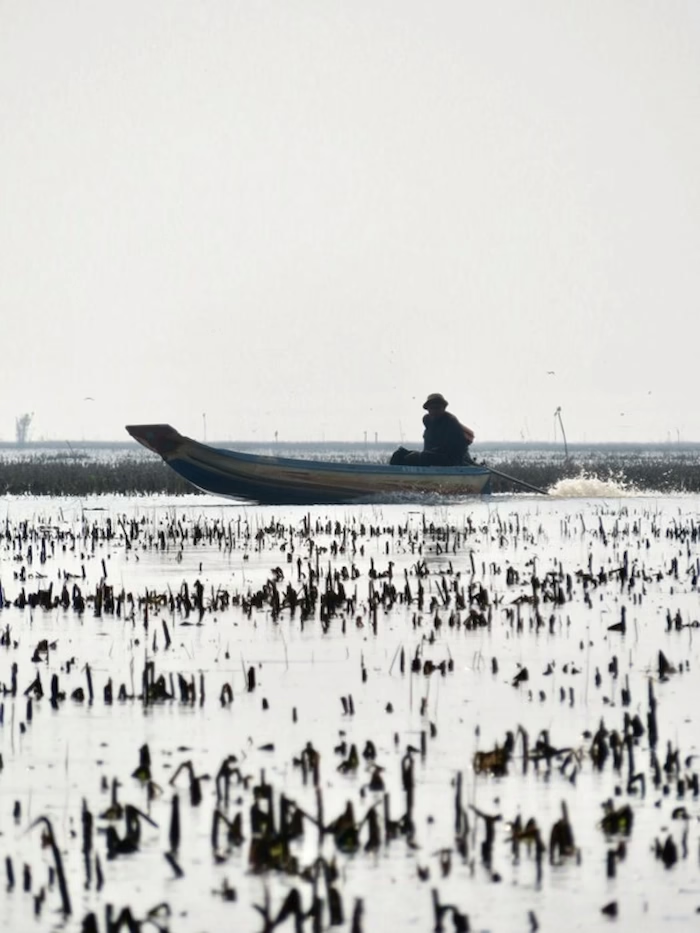
Framing Prek Toal: Photography, Conservation, and Life on the Tonle Sap
